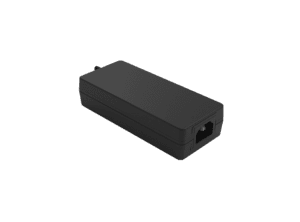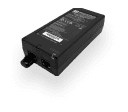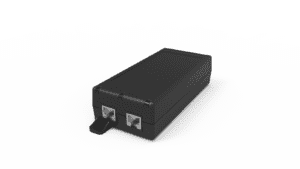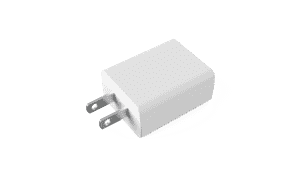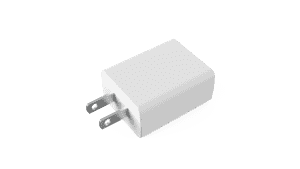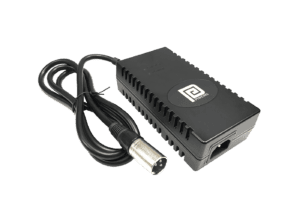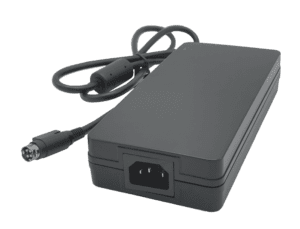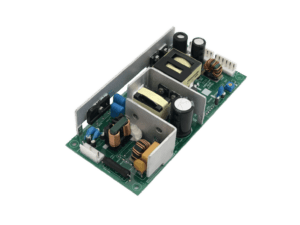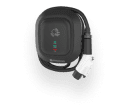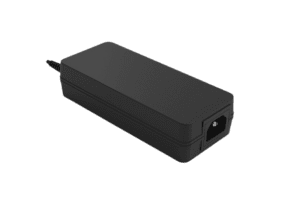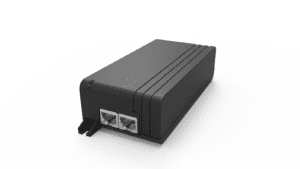BLOG
PoE Certification: An Overview of Various Safety Standards in the PoE Industry
Table of contents

Power over Ethernet (PoE) technology has revolutionized the way we power and connect devices, enabling a streamlined approach to network infrastructure. However, as this technology continues to evolve, so does the necessity for PoE certification. Certification plays a crucial role in validating the safety, efficiency, and interoperability of PoE products. It ensures that devices comply with stringent regulatory standards, thereby mitigating risks associated with non-compliance, such as equipment damage and safety hazards. Furthermore, certified products are often more reliable and easier to integrate into existing systems, making certification a vital component of any PoE strategy.
Understanding PoE Certification: Why It Matters
PoE certification is a critical aspect of ensuring that PoE devices operate safely and efficiently within a network. Certified PoE products have been tested to meet specific safety standards, which help prevent issues such as overheating, electrical faults, and network disruptions. Certification also ensures that PoE devices are compatible with other network equipment, reducing the risk of interoperability problems.
For manufacturers and OEMs, adhering to PoE certification standards is essential for gaining market trust and meeting regulatory requirements. Certified products are more likely to be accepted by customers and partners, as they provide assurance that the products meet industry-recognized safety and performance standards.
IEEE Standards: The Foundation of PoE Certification
The Institute of Electrical and Electronics Engineers (IEEE) sets the foundational standards for PoE technology. These standards define the technical specifications for delivering power over Ethernet cables and ensure that PoE devices operate safely and reliably.
The most commonly recognized IEEE standards for PoE include:
- IEEE 802.3af: Also known as standard PoE, this standard supports power delivery of up to 15.4 watts per port.
- IEEE 802.3at (PoE+): An enhanced version of standard PoE, providing up to 25.5 watts of power per port.
- IEEE 802.3bt (PoE++): The latest PoE standard, supporting power levels up to 60 watts (Type 3) and 90 watts (Type 4) per port.
Adhering to these IEEE standards is crucial for ensuring that PoE devices are compatible with other network equipment and can deliver power safely and efficiently.
ISO: Ensuring Quality and Safety in Manufacturing
The International Organization for Standardization (ISO) plays a vital role in establishing quality and safety standards in the manufacturing sector, including the production of Power over Ethernet (PoE) devices. ISO certifications help ensure that manufacturers adhere to best practices, enhancing the reliability and performance of their products.
Key ISO standards relevant to the PoE manufacturing industry include:
- ISO 9001: This standard focuses on quality management systems, ensuring organizations consistently meet customer and regulatory requirements while enhancing customer satisfaction.
- ISO 14001: Addressing environmental management, this standard helps companies improve their environmental performance, which is increasingly important in today’s eco-conscious market.
- ISO 45001: This standard for occupational health and safety management systems ensures a safe working environment by proactively managing workplace hazards. Compliance with ISO 45001 is crucial for PoE manufacturers to protect employees, reduce accidents, and foster a culture of safety, ultimately enhancing productivity and efficiency.
- ISO/IEC 17025: This standard is critical for testing and calibration laboratories, ensuring they produce accurate and reliable results when evaluating the performance and safety of PoE devices. Accredited testing under ISO/IEC 17025 helps manufacturers meet industry standards, identify potential risks, and boost market confidence in their products.
Adhering to these ISO standards is essential for PoE manufacturers, as it not only helps them maintain high-quality production processes but also fosters trust among consumers and businesses in the safety and reliability of their products.
UL Certification: Ensuring Product Safety and Reliability
Underwriters Laboratories (UL) certification is another critical safety standard in the PoE industry. UL certification focuses on ensuring that electrical products meet stringent safety requirements, particularly regarding fire and electrical hazards.
For PoE devices, UL certification typically involves rigorous testing to ensure that the products can operate safely under various conditions, including exposure to high temperatures and electrical surges. UL-certified PoE products are less likely to experience failures that could lead to network downtime or safety risks.
CE Marking: Compliance with European Safety Directives
CE marking is a mandatory certification for products sold within the European Economic Area (EEA). It indicates that a product complies with European safety, health, and environmental protection standards. For PoE devices, CE marking ensures that the product meets the essential requirements set out in relevant European directives, such as the Low Voltage Directive and the Electromagnetic Compatibility Directive.
CE-marked PoE devices are rigorously tested to ensure they do not pose any risk to users and that they operate reliably within the specified environmental conditions. Compliance with CE marking is essential for manufacturers looking to sell their PoE products in the European market.
FCC Compliance: Addressing Electromagnetic Interference
The Federal Communications Commission (FCC) regulates electronic devices sold in the United States to ensure they do not cause harmful interference with other electronic equipment. FCC compliance is particularly important for PoE devices, as they transmit both power and data over Ethernet cables, which can generate electromagnetic interference (EMI).
To achieve FCC certification, PoE devices must undergo testing to ensure they meet the FCC’s limits on EMI emissions. This certification helps prevent issues such as signal interference, which can disrupt network performance and cause connectivity problems.
RoHS and WEEE Compliance: Environmental Safety in PoE Products
The Restriction of Hazardous Substances (RoHS) and Waste Electrical and Electronic Equipment (WEEE) directives are European regulations aimed at reducing the environmental impact of electronic products. RoHS restricts the use of certain hazardous materials in electronic devices, while WEEE sets guidelines for the recycling and disposal of electronic waste.
For PoE devices, compliance with RoHS ensures that the products do not contain harmful substances such as lead, mercury, and cadmium. WEEE compliance, on the other hand, requires manufacturers to manage the end-of-life disposal of their products in an environmentally responsible manner.
Phihong’s Commitment to Certified PoE Solutions
Phihong is dedicated to providing PoE solutions that meet the highest safety and performance standards. The company’s products are certified to comply with key industry standards, including IEEE, ISO, UL, CE, FCC, RoHS, and WEEE. Phihong’s commitment to certification ensures that its PoE devices are reliable, safe, and environmentally responsible in all regions, making Phihong a trusted choice for OEMs and industry partners worldwide.
Phihong’s certification process involves rigorous testing and quality control measures to ensure that all products meet or exceed industry standards. This commitment to excellence allows Phihong to offer PoE solutions that not only meet regulatory requirements but also deliver exceptional performance in a wide range of applications.
CLIENT'S QUOTE
Phihong's Power-Over-Ethernet solutions have transformed our network, boosting efficiency and reducing costs. Their seamless integration has simplified both installation and maintenance.
Explore More with Phihong USA
As we conclude our exploration of PoE technology, it’s clear that this field is experiencing unprecedented growth. For over 50 years, Phihong has been at the forefront of innovation, serving Fortune 500 companies across various industries as a leading power supply manufacturer for OEMs.
Phihong’s leadership, particularly in advanced technologies like Power over Ethernet, extends to active contributions in the development of IEEE PoE standards. This involvement underscores our commitment to innovation and dedication to providing cutting-edge power solutions that will shape the future of technology.
In addition to custom power supply solutions, Phihong offers a diverse range of products, including:
- Power over Ethernet (PoE) Solutions: PoE injectors, splitters, media converters, and more
- AC/DC Adapters and Power Supplies: USB adapters, desktop adapters, industrial-grade power supplies, and more
- Battery Chargers: Chargers for lithium-ion and lead-acid batteries
- Medical Power Supplies: Specialized power supplies that meet stringent healthcare requirements
By partnering with Phihong USA, you are choosing a trailblazer in power technology. If you’re an OEM looking for a custom PoE solution or just looking for a quality product, call us today: 510-445-0100 or email us at usasales@phihongusa.com. We look forward to collaborating with you.

Contact Our Team Today!
Our dedicated sales team and international partners are prepared to support you with your latest projects and initiatives globally.
FAQ
Why is PoE certification important for network devices?
PoE certification is critical for ensuring that network devices operate safely, efficiently, and in compliance with industry standards. Certification involves rigorous testing of PoE products to verify that they meet specific safety and performance criteria. This testing covers various aspects, such as electrical safety, thermal management, and interoperability with other network devices.
Without certification, there is a higher risk that PoE devices could malfunction, leading to issues such as overheating, electrical faults, or network disruptions. These problems can cause significant downtime, especially in critical network environments like data centers, healthcare facilities, or industrial settings. Moreover, uncertified products may not be compatible with other certified devices, leading to interoperability challenges that can disrupt network performance.
For manufacturers and Original Equipment Manufacturers (OEMs), adhering to PoE certification standards is essential for gaining trust in the marketplace. Certified products are more likely to be accepted by customers, partners, and regulatory bodies because they provide assurance that the products meet industry-recognized safety and performance standards. This trust can translate into a competitive advantage, as certified products are often preferred in bidding processes and by organizations with stringent safety requirements.
Additionally, PoE certification helps ensure compliance with legal and regulatory requirements in various regions, such as the European Union’s CE marking or the United States’ FCC compliance. Non-compliance can result in penalties, product recalls, or bans, which can be costly and damaging to a company’s reputation. Therefore, investing in PoE certification is not only about safety and performance but also about protecting the company’s brand and ensuring long-term success in the market.
What are the key certifications to look for in PoE products?
When selecting PoE products, there are several key certifications you should consider to ensure the safety, performance, and environmental compliance of the devices. Here’s a breakdown of the most important certifications:
- IEEE Standards (e.g., IEEE 802.3af, 802.3at, 802.3bt): These standards define the technical specifications for delivering power over Ethernet cables. They ensure that PoE devices are compatible with each other and can safely deliver the required power levels. For example, IEEE 802.3af (standard PoE) supports up to 15.4 watts per port, while IEEE 802.3at (PoE+) and IEEE 802.3bt (PoE++) support up to 25.5 watts and 60-100 watts, respectively. Compliance with these standards is crucial for ensuring that your PoE devices work seamlessly together and deliver consistent performance.
- UL Certification: Underwriters Laboratories (UL) certification focuses on electrical and fire safety. It ensures that PoE products can operate safely under various conditions, including exposure to high temperatures and electrical surges. UL-certified products are tested for their ability to prevent electrical hazards, making them safer to use in both residential and commercial environments. This certification is particularly important for reducing the risk of fire and ensuring the overall safety of the network.
- CE Marking: CE marking is mandatory for products sold within the European Economic Area (EEA). It indicates that a product complies with European safety, health, and environmental protection standards. For PoE devices, CE marking ensures compliance with directives such as the Low Voltage Directive and the Electromagnetic Compatibility Directive. CE-marked products are rigorously tested to ensure they do not pose risks to users and operate reliably within specified environmental conditions.
- FCC Compliance: The Federal Communications Commission (FCC) regulates electronic devices in the United States to ensure they do not cause harmful electromagnetic interference (EMI) with other electronic equipment. FCC certification is essential for PoE devices to prevent issues such as signal interference, which can disrupt network performance. Compliance with FCC regulations is required for legal sale in the U.S. and is a key factor in ensuring reliable operation.
- RoHS and WEEE Compliance: The Restriction of Hazardous Substances (RoHS) directive limits the use of specific hazardous materials in electronic products, such as lead, mercury, and cadmium. Compliance with RoHS ensures that PoE devices are environmentally friendly and safe for long-term use. The Waste Electrical and Electronic Equipment (WEEE) directive focuses on the recycling and disposal of electronic waste, promoting sustainability. Products that comply with WEEE are easier to recycle and dispose of responsibly, reducing their environmental impact.
Each of these certifications plays a vital role in ensuring that PoE products meet high standards for safety, performance, and environmental responsibility. When choosing PoE devices, it’s essential to verify that they carry the appropriate certifications to ensure they meet your network’s needs and comply with regulatory requirements.
How does UL certification benefit PoE products?
UL certification provides significant benefits to PoE products by ensuring they meet stringent safety standards, particularly regarding electrical and fire hazards. The certification process involves rigorous testing to evaluate the product’s ability to operate safely under various conditions, such as high temperatures, electrical surges, and prolonged use.
One of the primary benefits of UL certification is the assurance of electrical safety. UL-certified PoE products are designed to prevent electrical faults that could lead to overheating, short circuits, or electrical fires. This is particularly important in environments where PoE devices are used continuously, such as in data centers, industrial settings, or commercial buildings. By ensuring that PoE products can handle the electrical load without risking safety, UL certification helps prevent potential disasters and ensures the reliable operation of the network.
Another critical aspect of UL certification is fire protection. PoE products must pass fire safety tests that assess their ability to withstand high temperatures without igniting or causing a fire. This is especially important for PoE devices that are installed in areas with flammable materials or where high heat is a concern. UL certification provides peace of mind that the products will not contribute to fire hazards, protecting both property and lives.
UL certification is also widely recognized and trusted by consumers and industry professionals alike. This recognition makes UL-certified products more attractive in the marketplace, as they are perceived as being of higher quality and reliability. For manufacturers and OEMs, obtaining UL certification can be a key differentiator that sets their products apart from competitors. It can also be a requirement for certain contracts or projects, particularly those involving government or large corporate clients.
In addition to safety benefits, UL certification can also simplify the regulatory approval process in various regions. Many jurisdictions accept UL certification as proof that a product meets local safety standards, reducing the need for additional testing or certification. This can expedite the product’s time-to-market and reduce compliance costs.
Overall, UL certification is an essential component of ensuring that PoE products are safe, reliable, and market-ready. By choosing UL-certified PoE devices, you can protect your network, comply with safety regulations, and provide a higher level of assurance to your customers and partners.
What is the significance of RoHS and WEEE compliance in PoE devices?
RoHS (Restriction of Hazardous Substances) and WEEE (Waste Electrical and Electronic Equipment) compliance are significant in the PoE industry because they address the environmental impact of electronic products and promote sustainability. These European Union directives have become global benchmarks for environmentally responsible manufacturing and end-of-life management of electronic devices.
RoHS compliance is crucial because it limits the use of specific hazardous substances in electronic products, including PoE devices. The substances restricted by RoHS, such as lead, mercury, cadmium, and certain flame retardants, can pose serious environmental and health risks if not properly managed. By adhering to RoHS standards, manufacturers ensure that their PoE products are safer for both users and the environment. RoHS-compliant products are less likely to cause harm during use, and they are easier to recycle or dispose of responsibly at the end of their lifecycle.
For PoE devices, RoHS compliance ensures that the materials used in their construction do not contain harmful levels of these restricted substances. This compliance is particularly important for products that will be used in sensitive environments, such as healthcare facilities, schools, and residential areas, where exposure to toxic materials could have severe consequences.
WEEE compliance, on the other hand, focuses on the responsible disposal and recycling of electronic products, including PoE devices, at the end of their useful life. WEEE sets guidelines for how manufacturers, distributors, and end-users should manage electronic waste to minimize its environmental impact. This includes measures such as designing products for easier disassembly and recycling, providing take-back programs for old devices, and ensuring that electronic waste is handled by certified recycling facilities.
The significance of WEEE compliance lies in its contribution to reducing the growing problem of electronic waste, which can have harmful effects on the environment if not managed properly. By complying with WEEE, manufacturers of PoE devices demonstrate their commitment to sustainability and environmental stewardship. This compliance also aligns with the increasing demand from consumers and businesses for greener products and practices.
For manufacturers, RoHS and WEEE compliance are not just about meeting regulatory requirements; they also offer a competitive advantage in the marketplace. Products that meet these standards are more likely to be accepted in markets where environmental regulations are strict, such as the European Union. Additionally, compliance with RoHS and WEEE can enhance a company’s reputation as a responsible and environmentally conscious business, attracting customers who prioritize sustainability.
In summary, RoHS and WEEE compliance are essential for ensuring that PoE devices are environmentally safe and responsibly managed throughout their lifecycle. These certifications help reduce the environmental impact of electronic products, promote sustainable practices, and meet the growing demand for eco-friendly solutions in the technology industry.
How does Phihong ensure that its PoE products meet industry certifications?
Phihong is committed to ensuring that its PoE products meet the highest industry certifications, reflecting the company’s dedication to quality, safety, and environmental responsibility. The process of achieving and maintaining these certifications involves several key steps, each designed to ensure that Phihong’s products adhere to strict standards and exceed customer expectations.
The first step in Phihong’s certification process is rigorous product design and development. Phihong’s engineering teams work closely with industry experts to design PoE products that not only meet but exceed the requirements set by relevant standards such as IEEE, UL, CE, FCC, RoHS, and WEEE. This involves selecting high-quality materials, incorporating advanced safety features, and ensuring that the products are designed for durability and reliability in a wide range of operating conditions.
Once a product design is finalized, it undergoes extensive testing in Phihong’s state-of-the-art laboratories. These tests are designed to simulate real-world conditions and assess the product’s performance under various stress factors, such as electrical surges, temperature extremes, and electromagnetic interference. By subjecting their products to such rigorous testing, Phihong ensures that they can withstand the demands of their intended environments while maintaining high levels of safety and performance.
Phihong also collaborates with external certification bodies to validate the safety and compliance of their products. For example, to obtain UL certification, Phihong’s PoE products are sent to Underwriters Laboratories for independent testing. Similarly, for CE marking, products are tested to ensure they meet the safety, health, and environmental protection standards required by the European Union. Phihong’s products must pass these tests before they can be certified and released to the market.
In addition to initial certification, Phihong is committed to ongoing compliance and quality assurance. The company conducts regular audits and inspections of its manufacturing processes to ensure that all products continue to meet the required standards throughout their production lifecycle. This includes monitoring the consistency of materials, checking for any deviations in manufacturing processes, and re-testing products periodically to verify their continued compliance with safety and performance standards.
Phihong also stays actively involved in the development of new industry standards. By participating in industry forums, working groups, and standard-setting organizations, Phihong ensures that its products are not only compliant with current standards but are also prepared to meet future requirements. This proactive approach allows Phihong to stay ahead of industry trends and provide products that are at the forefront of technology and safety.
Furthermore, Phihong provides extensive documentation and support to help customers and partners understand the certifications and compliance of their products. This includes providing detailed product specifications, certification reports, and guidance on how to install and use the products safely and effectively. Phihong’s customer support teams are also available to assist with any questions or concerns related to product certification and compliance.
By following this comprehensive approach to certification, Phihong ensures that its PoE products are of the highest quality and reliability, meeting the stringent requirements of global safety and environmental standards. This commitment to certification not only enhances the trust and confidence of Phihong’s customers but also solidifies Phihong’s reputation as a leader in the PoE industry.

